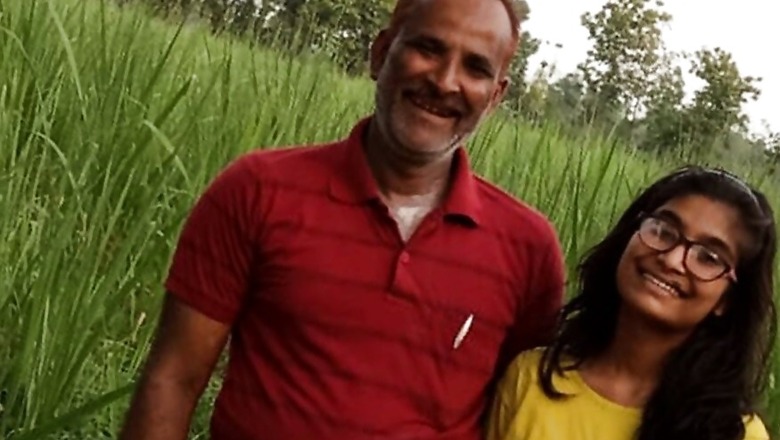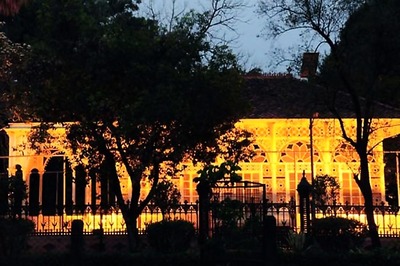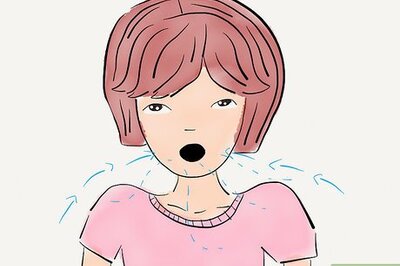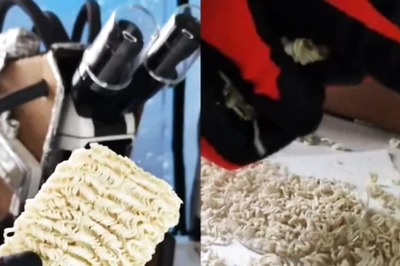
views
Shikoh Zaidi, the 16-year-old daughter of a farmer from Uttar Pradesh's Hardoi district, is set to join the Georgetown University in Qatar with full aid after scoring 93% in her Class 12 Board exams. Zaidi has not just made her family proud but made a great difference in her village with the way people earlier perceived and spoke about "menstrual health". The teenager started campaigns to break taboos around periods and spread awareness about menstrual hygiene in her village.
Zaidi completed her schooling from the VidyaGyan Leadership Academy, a residential co-ed school that offers free education to rural and underprivileged meritorious students from UP. She is now preparing for global exposure. No matter where she goes, she tells News18 that women's issues will always be close to her heart.
Beti, Babajaan, Boards and Menstrual Blood
Every summer, Shikoh returned to her village for vacations and that is when she started a campaign on menstrual health to break taboos around them. It was not easy for her as women in the village were too uncomfortable talking about periods.
She was in class 11 when she read Deepa Narayan’s book 'Chup', which sensitized her about the problems faced by women in India. “I was in school when I read that book and tried to relate to the issues mentioned in it with my community in the village, they all remain silent and suffer as the health deteriorates,” she said.
The shame attached to hygiene provoked her to speak about it. Zaidi approached her teachers and mentors and after discussions she was confident of going back home to start an awareness drive around menstrual health. “I had conversations with the girls in my village, nobody talked openly about it. Many of them told me they use cloth instead of sanitary pads, they get rashes and never speak about what they need and problems they face,” she said.
Zaidi studied more on girls’ education and interviewed women and girls in her village. “So many of them dropped out from school because there is no facility for them after they start having periods. They don’t go beyond primary education because their schools don’t offer washing or sanitary facilities,” she said.
The NFHS 2015-16 said, “Women with 12 or more years of schooling are more than four times as likely to be using a hygienic method as women with no schooling (81% versus 20%).”
The stories strengthened her resolve to go ahead with her plan, but her mother discouraged Zaidi as it would have been embarrassing to see her daughter talk about periods. “My mother was not happy and suggested I do all this ‘drama’ in cities. But my father stepped in to help me,” she said.
But Zaidi got a projector, designed awareness material and wrote slogans but no one turned up for her campaign.
“Baba jaan joined me in door-to-door campaigning, I lured the village girls by saying I have movies to show on projector, many came thinking of a Bollywood film but they liked what I showed on awareness about periods, and then the gathering and attendance to my campaign grew,” she said.
Her father Mohammad Muslim told News18.com, “Our villages have a very low opinion about topics like menstrual health. And we should not shy away from creating awareness about these things – give people advice and suggestions to improve.”
Muslim said all his seven daughters have made him proud -- Shikoh is the third one and her elder sisters are doing well in academics and competitive examinations. “I have told them to work hard and do all they can for a good education. I want them to be very well educated,” he added.
Survey showed progress
The time Zaidi started the campaign, there were hardly any girls using sanitary pads in her village. But she recently conducted a survey, which showed that out of 60 girls almost 40 are using pads and 20 have problems in acquiring them. “Many of the families are poor and cannot spend money on expensive sanitary pads, which is one of them most important reasons for girls not having sanitary pads at home,” she said.
The NFHS 2015-16 said, “Women from the highest wealth quintile are more than four times as likely to use a hygienic method as women from the lowest wealth quintile (89% versus 21%).”
Zaidi thought the problem could be solved through government initiatives in making sanitary pads accessible, so she approached the ASHA worker in her village. “But those would reach the block community centre, which was 30 km away from our village. Who would walk or ride this far to get pads? Not many, so I approached NGOs to provide an alternative. We will soon find a way to make it affordable,” she said.
Zaidi was very active in class 11 in pursuing this issue and continued till class 12. Due to exams there was some pause in the campaign but soon she will follow up on the menstrual health facilities.
Zaidi is happy with her 93% marks and happier for scoring 97% in political science. Interested in foreign affairs, she wants to be part of organisations of global importance. An admirer of Meghan Markle, Duchess of Sussex, and New Zealand Prime Minister Jacinda Ardern.

















Comments
0 comment